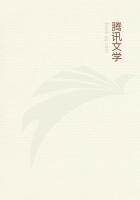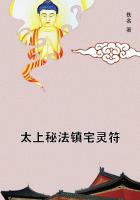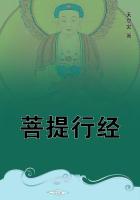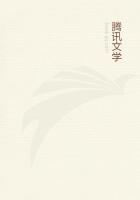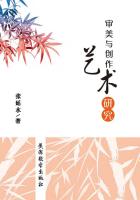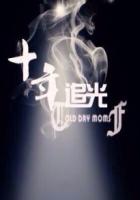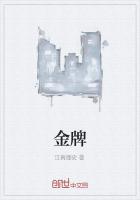We rested soundly in the yurta after the two days of travel which had brought us one hundred seventy miles through the snow and sharp cold. Round the evening meal of juicy mutton we were talking freely and carelessly when suddenly we heard a low, hoarse voice:
"Sayn--Good evening!"
We turned around from the brazier to the door and saw a medium height, very heavy set Mongol in deerskin overcoat and cap with side flaps and the long, wide tying strings of the same material.
Under his girdle lay the same large knife in the green sheath which we had seen on the departing horseman.
"Amoursayn," we answered.
He quickly untied his girdle and laid aside his overcoat. He stood before us in a wonderful gown of silk, yellow as beaten gold and girt with a brilliant blue sash. His cleanly shaven face, short hair, red coral rosary on the left hand and his yellow garment proved clearly that before us stood some high Lama Priest,--with a big Colt under his blue sash!
I turned to my host and Tzeren and read in their faces fear and veneration. The stranger came over to the brazier and sat down.
"Let's speak Russian," he said and took a bit of meat.
The conversation began. The stranger began to find fault with the Government of the Living Buddha in Urga.
"There they liberate Mongolia, capture Urga, defeat the Chinese army and here in the west they give us no news of it. We are without action here while the Chinese kill our people and steal from them. I think that Bogdo Khan might send us envoys. How is it the Chinese can send their envoys from Urga and Kiakhta to Kobdo, asking for assistance, and the Mongol Government cannot do it? Why?""Will the Chinese send help to Urga?" I asked.
Our guest laughed hoarsely and said: "I caught all the envoys, took away their letters and then sent them back . . . into the ground."He laughed again and glanced around peculiarly with his blazing eyes. Only then did I notice that his cheekbones and eyes had lines strange to the Mongols of Central Asia. He looked more like a Tartar or a Kirghiz. We were silent and smoked our pipes.
"How soon will the detachment of Chahars leave Uliassutai?" he asked.
We answered that we had not heard about them. Our guest explained that from Inner Mongolia the Chinese authorities had sent out a strong detachment, mobilized from among the most warlike tribe of Chahars, which wander about the region just outside the Great Wall.
Its chief was a notorious hunghutze leader promoted by the Chinese Government to the rank of captain on promising that he would bring under subjugation to the Chinese authorities all the tribes of the districts of Kobdo and Urianhai. When he learned whither we were going and for what purpose, he said he could give us the most accurate news and relieve us from the necessity of going farther.
"Besides that, it is very dangerous," he said, "because Kobdo will be massacred and burned. I know this positively."When he heard of our unsuccessful attempt to pass through Tibet, he became attentive and very sympathetic in his bearing toward us and, with evident feeling of regret, expressed himself strongly:
"Only I could have helped you in this enterprise, but not the Narabanchi Hutuktu. With my laissez-passer you could have gone anywhere in Tibet. I am Tushegoun Lama."Tushegoun Lama! How many extraordinary tales I had heard about him. He is a Russian Kalmuck, who because of his propaganda work for the independence of the Kalmuck people made the acquaintance of many Russian prisons under the Czar and, for the same cause, added to his list under the Bolsheviki. He escaped to Mongolia and at once attained to great influence among the Mongols. It was no wonder, for he was a close friend and pupil of the Dalai Lama in Potala (Lhasa), was the most learned among the Lamites, a famous thaumaturgist and doctor. He occupied an almost independent position in his relationship with the Living Buddha and achieved to the leadership of all the old wandering tribes of Western Mongolia and Zungaria, even extending his political domination over the Mongolian tribes of Turkestan. His influence was irresistible, based as it was on his great control of mysterious science, as he expressed it; but I was also told that it has its foundation largely in the panicky fear which he could produce in the Mongols.
Everyone who disobeyed his orders perished. Such an one never knew the day or the hour when, in his yurta or beside his galloping horse on the plains, the strange and powerful friend of the Dalai Lama would appear. The stroke of a knife, a bullet or strong fingers strangling the neck like a vise accomplished the justice of the plans of this miracle worker.
Without the walls of the yurta the wind whistled and roared and drove the frozen snow sharply against the stretched felt. Through the roar of the wind came the sound of many voices in mingled shouting, wailing and laughter. I felt that in such surroundings it were not difficult to dumbfound a wandering nomad with miracles, because Nature herself had prepared the setting for it. This thought had scarcely time to flash through my mind before Tushegoun Lama suddenly raised his head, looked sharply at me and said:
"There is very much unknown in Nature and the skill of using the unknown produces the miracle; but the power is given to few. Iwant to prove it to you and you may tell me afterwards whether you have seen it before or not."He stood up, pushed back the sleeves of his yellow garment, seized his knife and strode across to the shepherd.
"Michik, stand up!" he ordered.
When the shepherd had risen, the Lama quickly unbuttoned his coat and bared the man's chest. I could not yet understand what was his intention, when suddenly the Tushegoun with all his force struck his knife into the chest of the shepherd. The Mongol fell all covered with blood, a splash of which I noticed on the yellow silk of the Lama's coat.
"What have you done?" I exclaimed.
"Sh! Be still," he whispered turning to me his now quite blanched face.

